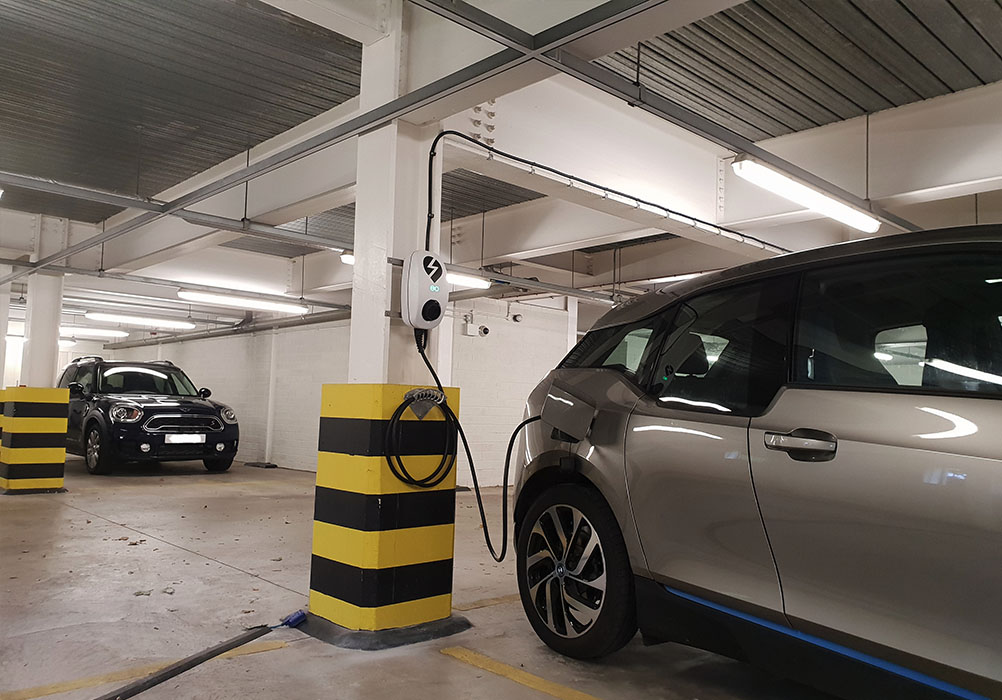Just two decades ago, electric vehicles were only a reality in sci-fi films. But in 2020, there were more than 430,000 electric vehicles on UK roads, according to the Department of Transport. Thus confirming the future of driving is very much electric.
The increase in electric vehicle sales is largely due to the government’s commitment to banning the sale of all new petrol and diesel cars by 2030, which is part of its strategy to achieve net-zero carbon emissions by 2050.
Despite the popularity of electric vehicles, there are still many misconceptions and myths that are discouraging some Britons from making the switch to electric vehicles. Below we debunk 5 common electric vehicle myths.
Myth #1: All Electric Cars Take 12 Hours or More to Fully Charge
Not every electric vehicle takes all day to charge. The EV charging option you choose, will determine how long it takes to charge your EV battery from empty to full.
Charging an enormous battery using a standard 3-pin-plug connected to your wall socket, with a speed of 3kW, will take all day. In fact, charging any electric vehicle with a three-pin plug is inefficient, time consuming, and dangerous for your domestic electrics.
A home EV charge point will reduce your charging time significantly. EV charge points are available in 7kW or 24kW speeds. An electric vehicle with 62kWh battery would take around nine hours to charge from empty to full using a 7kW EV charge point. A smart EV charge point will allow you to schedule your charge and speed, which means that you could charge your vehicle safely while you sleep.
Most EV drivers charge their electric vehicles overnight to take advantage of the cheaper off-peak energy tariffs. The reduced tariffs allow them to save money and power their vehicles for much less than it costs to run an internal combustion engine car.
Myth #2: Electric Vehicles Can’t Drive Long Distances
Some new electric vehicle owners have range anxiety and are concerned that a full EV battery won’t get them very far. Modern electric vehicles have driving ranges of 150 miles, while some vehicles, such as Teslas, can go as far as 350 miles on a single charge.
If you have to cover longer distances daily, you can still top-up your battery at one of the many rapid EV charging points across the UK.
Myth #3 You Can Only Own an EV if You Have a Driveway
Some people believe that you need a driveway to own an electric vehicle. A driveway will make charging your electric vehicle more convenient, yes, but it’s not a necessity. There are many ways to charge your electric vehicle.
More businesses are introducing workplace charging to benefit their employees and attract customers. There are even government grants to encourage businesses to invest in workplace EV charge point installation. The Office for Low Emission Vehicle (OLEV) has provided the Workplace Charging Scheme, contributing up to £350 for each charge point installed on a business’ premises.
If you don’t have off-street parking or a driveway, you can still qualify for the OLEV Electric Vehicle Home Charge Scheme. The scheme can reduce the cost of buying and installing an EV home charger by up to 75%.
Myth #4: EVs are Just City Cars
The government incentivised electric vehicle use by providing 100% discounts on London’s Ultra Low Emission Zone (ULEZ) and Congestion Charge. Both incentives are London-centric, but this does not mean that electric vehicles are only suitable for city driving.
Electric cars are an excellent option for anyone looking for an affordable, efficient, modern, and greener way to drive. Rapid public charge points are being installed all across the UK every day, which makes owning and powering an electric vehicle convenient for all Britons. There are also new standards for EV charging points to ensure that EVs are inclusive too.
Myth #5: Electric Vehicles are More Expensive than Petrol and Diesel Cars
Electric vehicles are proving to be the more affordable way to travel. Newer technology, government grants, and lower energy tariffs make owning an electric vehicle less expensive than petrol and diesel cars.
In the past, buying a new electric vehicle was very expensive, but higher demand has caused the price to decrease over the years. The manufacturing process has also been streamlined, which influences the price of electric vehicles too. You can now also own a new vehicle through your job with the new EV Leasing Scheme.
The running costs of an electric vehicle are much lower than traditional petrol and diesel vehicles. Maintenance costs are lower, and there are lengthy warranties that cover power packs as well. In addition to cheaper electricity tariffs, you can also save by powering your EV charger with a solar panel installation and battery storage.
Quality EV Charge Point Installation from Applegarth
Home EV charge point installation makes owning an electric vehicle that much more convenient as you won’t have to spend hours at public charge points to recharge your EV battery. Businesses across the UK are also investing in electric vehicle fleets, indicating that electric vehicles are here to stay.
To enjoy the benefits of owning an electric vehicle, it’s a good idea to invest in an EV charge point from an accredited installation company, such as Applegarth.
Applegarth provides high-quality EV charge point installation and solar panel installation. As an OLEV approved installation company, we can provide grant support for an EV charge point installation that can benefit your home and business. Our trained technicians have completed hundreds of installations for residential and commercial properties in Wirral, Chester, and right across the UK.
We have been providing renewable energy solutions for well over a decade and understand that change can be difficult. Whether you need help debunking more EV myths or want to start the EV installation process, we can help.
Contact us today, and one of our friendly team members will be on hand to answer any of your questions.







